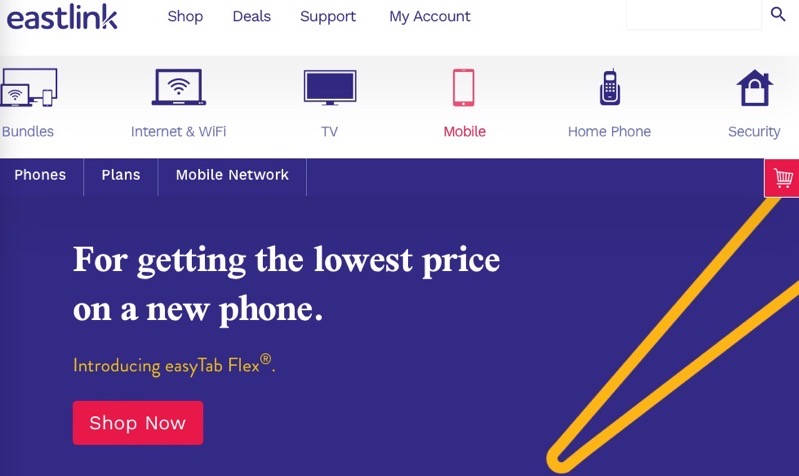
Rogers, Telus and Bell Explain Why Bills Don’t Drop After Your Phone is Paid Off
For Canadians enticed into signing a two-year contract for a new smartphone, aside from your upfront pricing, the remainder of your phone balance is tied into your monthly plan over 24 months.
After your two-year term expires, you plan theoretically should reduce in price, since the phone has been paid off. But this is not the case and does not happen automatically if you’re a customer on Rogers, Telus and Bell.
Langley, B.C. resident, Greg Severson, contacted Global News about his experience with Telus, saying he was surprised his bill did not drop after his two-year term was up.
When the customer asked Telus for an explanation, he was told the plan he initially signed up for no longer existed—and was recommended to get a new device on a new two-year plan.
“I feel as a consumer we have absolutely no say. They hold all the cards,” Severson told Global News.
Telus responded to say they “proactively communicate with our customers in the final three months of their contract to offer affordable device upgrades and access to plans that match or are even better than our in-market promotions for new customers.”
In Severson’s case, Telus explained he was given BYOD plan options but he opted to upgrade his phone and ultimately start another 24-month agreement.
The Langley resident says he disagrees with the Telus version of the events. Severson said instead of arguing with Telus, he decided to sign up for a new phone and contract, saying “It wasn’t worth the fight,” in trying to get the company to reduce subsidies from his plan.
Should wireless carriers automatically remove your device subsidy payments after 24 months? This is exactly what was suggested to the CRTC by the Commission for Complaints for Telecom-Television Services (CCTS).
“When the CRTC reviewed the Wireless Code, it was proposed that the monthly bill should decrease by the amount of the device subsidy once the contract term expires and the device subsidy is repaid. The CRTC decided not to include this requirement in the code,” the CCTS told Global News in a statement.
Shaw’s Freedom Mobile says their customers on contract will see their MyTab balance “automatically removed from their account,” adding “We do not require customers to request for their MyTab payments to be removed from their monthly bill after the device balance is clear.”
But for Telus, Rogers and Bell, all three companies told Global News they inform customers in advance of their contract expiry and present them with BYOD plan options, a new phone upgrade and contract, or to remain on their current plan. Monthly plans do not reduce after 24 months.
The full statements from the ‘Big 3’ to Global News can be read below:
Telus: “We proactively communicate with our customers in the final three months of their contract to offer affordable device upgrades and access to plans that match or are even better than our in-market promotions for new customers. We also have a variety of bring-your-own-device (BYOD) plans customers can select should they wish to keep their existing device.
Rogers: “We let our customers know well in advance of their fixed-term contract expiring to remind them of the variety of options available, including switching to a bring-your-own-device plan or upgrading their device on a new fixed term contract. If they do not choose one of these options, the customer’s plan continues on a month-to-month basis to ensure their service continues uninterrupted.”
Bell: “At the end of the term, a customer can choose a new BYOD plan with their current phone, decide to get a new subsidized device and plan, or simply continue with the same rate plan, it’s up to them.”
The B.C. government announced last month it would attempt to bring “affordable” cellphone bills to residents by working with Ottawa, while also bring consumer protections.
“Canadians pay some of the highest fees for phones and data in the world. Consumers deserve to know the true costs of the services they buy. This year, your government will take action to improve billing transparency, beginning with a consultation and legislative review,” said Lt.-Gov Janet Austin, while reading the government’s Throne Speech.
As for a potential class-action lawsuit over the lack of device subsidy removals in a monthly cellphone plan?
Merchant Law told Global News, “The consumer protection acts are in place and we believe that the conduct of the companies in this case is in violation of the [B.C. Business Practices and Consumer Protection Act,] ” noting a class action may be pursued if there’s enough consumer interest.
You’re better off buying a smartphone outright and going with a monthly BYOD plan. Once a better plan comes along, you then have the ability to switch carriers problem-free and can leverage your exit for possibly an unlisted retention plan. But if you can’t fork up funds upfront, that’s when these two-year plans seem enticing.


